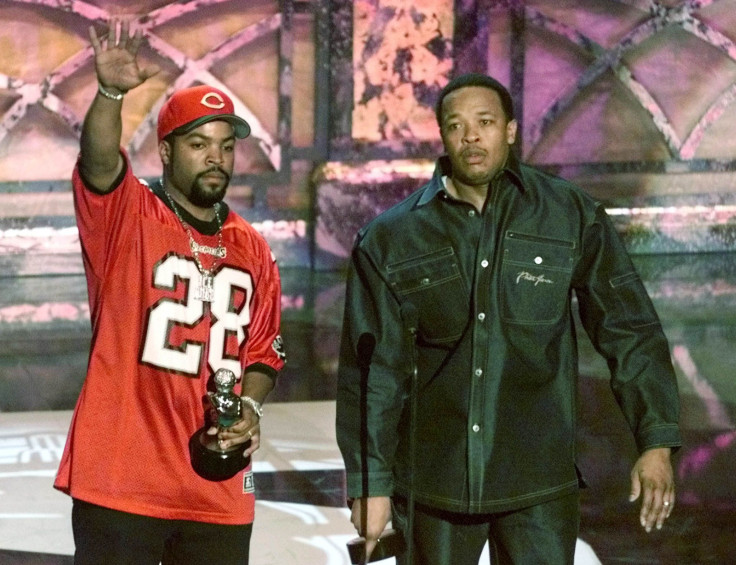California Universities Teach Hip Hop And Slang To Students Of English As A Second Language

There are several tools that a person can use when trying to learn English, like literature, dictionaries or videos. But what about rap music?
In California, one English as a Second Language teacher and hip-hop music fan at the University of California, Davis, decided to help incorporate the 1990s rap hit "Straight Outta Compton" by N.W.A into his lesson plan, to help his students understand English slang. According to a report by Southern California Public Radio, one of Stephen Mayeux's lessons for students was based on the title itself, for teaching students when reductions are used in English spoken language, the way “out of” is often shortened to “outta,” especially when speaking. “They’re saying straight out of Compton,” Mayeux said. “But I think a lot of people, especially Americans, we pronounce it ‘outta.’”
At the University of California, Los Angeles, 23-year-old Zhang Jiuhua is also keen on learning English slang and colloquialisms. Currently enrolled at UCLA’s Extension’s American Language Center and taking one of the "street talk" courses, Zhang says that as she has studied English (something that started at middle school in China, her home country), she's wanted to know more about the language’s idioms and slang. “My conversation is more academic, or more like an essay,” Zhang said in the report. “I need to be more, like, American.” With the additional "like," she is well on her way to sounding like a stereotypical California local.
Since slang is constantly evolving, and can often be very regional, especially in the U.S., teachers have to get creative with their material, in the way Mayeux has. Mayeux takes his lessons in English a step further, offering his “Hip-hop as a Second Language Class” online as well, at ESLhiphop.com, where he delves into wordplay with Ludacris and Nicki Minaj and "reduced relative clauses" with the help from Philadelphia hip-hop band The Roots.
While some other educators and teaching peers may express criticism over his lessons, Mayeux -- as someone who has studied linguistics -- finds value in the language of hip-hop. “You have to treat every form or variety of the language as if it’s equally complex and valid,” he said. “So the English that a rapper or hip-hop artist uses is no better or worse than what a university professor is using.”
There is value also in helping people interact seamlessly with native American English speakers. Pop culture is constantly referenced in conversation, and as many older people may know, fluency in English does not equal fluency in pop culture. “They do experience a little bit of alienation,” Mayeux said of some of his close friends from other countries. “They feel like they can’t be fully part of the group because they’re not speaking the same lingo.” Just as legal or medical jargon can often sound like a foreign language, pop-culture slang can be necessary when interacting with peers.
For Zhang, learning slang is helping her fit in with the community. Zhang is confident about what she’s been picking up, but understands that words are constantly being added to the lexicon. She’s proud of what she’s already picked up, dropping her old formal speech, for more casual language. She has since dropped her habit of saying “good morning, everyone” when walking into a room. Now, “we just say, ‘hi, guys!’”
© Copyright IBTimes 2024. All rights reserved.












